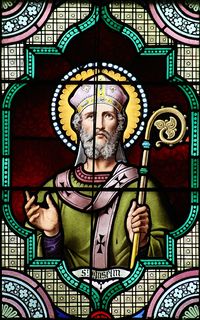...that slavery in england wasn't abolished by wilberforce et al.If one thinks of those who led to the abolition of slavery in Britain, inevitably one thinks of Wilberforce, Prince, Equiano and Sharpe. After all, that is what I and countless others were taught at school. Their role in bringing about the ending of the abhorrent trade in human beings in legislation of 1807 and 1833 is rightly remembered as crucial. However, a detail that is easy to miss in this story is that there was no slavery in Britain itself, it was limited to the British Empire.
Slavery in England had been abolished way back in 1102 by the Statute of Westminster, overseen by the then Archbishop of Canterbury, Anselm. The capture and forced labour of men and women as slaves was a common feature throughout Europe in the eleventh century. Under the Vikings and Anglo-Saxons this was a trade in which England played an active part. However, in the 1102 Statute of Winchester a law was passed which included the provision “let no one hereafter presume to engage in that nefarious trade in which hitherto in England men were usually sold like brute animals” As is always the case in History, things are not as black as white as one might wish. After 1102 many people with in England remained unfree. They were forced to carry out unpaid labour services on their lord’s land, and were unable to leave without his permission, for which they were given the name of ‘villeins’. However, they could no longer be uprooted, shipped to far flung corners of the continent and sold to the highest bidder, as many of their fellow human beings would be over the next 700 years. For that there was reason for an Englishman to be grateful in 1102. Co-Editor, Conal Smith @prohistoricman
0 Comments
Leave a Reply. |
Categories
All
Archives
April 2024
|

 RSS Feed
RSS Feed